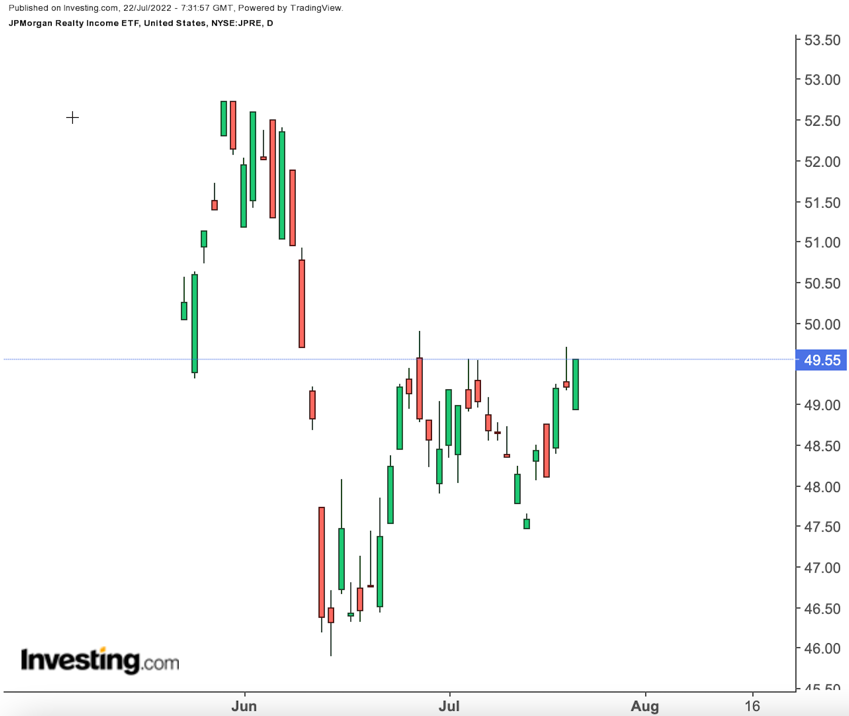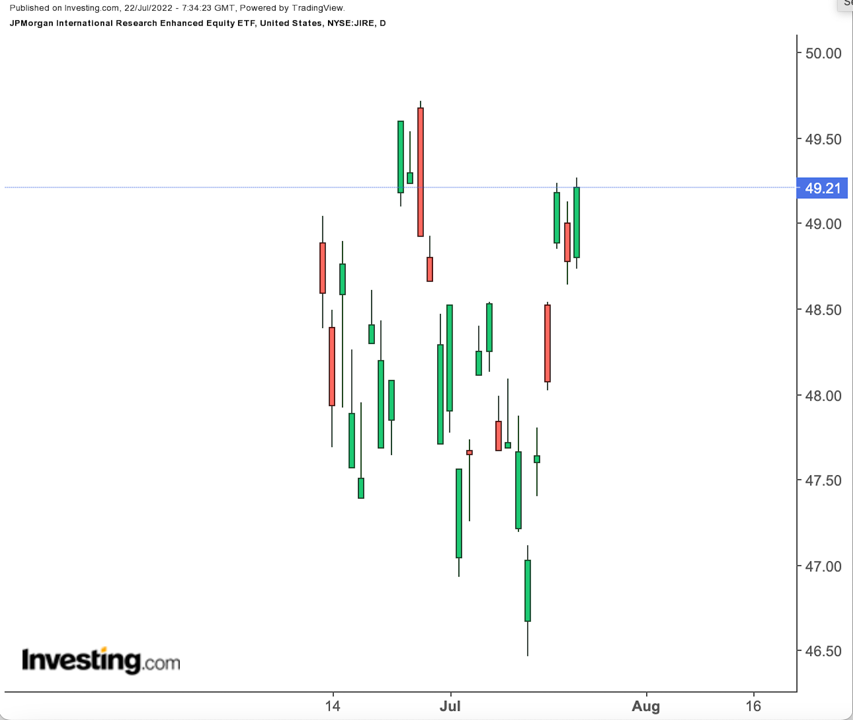- Converting mutual funds to ETFs is an emerging trend
- ETFs offer flexible trading and more transparency
- 2 JP Morgan ETFs worth a look
- Current Price: $49.55
- 52-week range: $45.89 - $52.74
- Expense ratio: 0.50% per year
- Current Price: $49.21
- 52-week range: $46.46 - $49.72
- Expense ratio: 0.24% per year
The conversion of mutual funds into exchange-traded funds (ETFs) has been gaining traction on Wall Street as the global ETF market enjoys increased investor interest and capital inflows.
Research suggests:
"The global ETFs industry had 10,483 products, with 21,604 listings, assets of $8.86 trillion, from 644 providers on 80 exchanges in 63 countries at the end of June."
Investors often prefer ETFs over mutual funds due to their lower operating costs, flexible trading, greater transparency, and potential tax efficiency in taxable accounts.
In 2021, Guinness Atkinson became one of the first financial groups to provide conversion from mutual funds to ETFs. Since then, Adaptive Investments, Dimensional Fund Advisors, and Harbor Capital Advisors have also converted a number of their mutual funds into ETFs.
More recently, JP Morgan Asset Management converted four of its mutual funds into active ETFs, with roughly $9 billion in combined assets under management. Today, we introduce two of those ETFs.
1. JPMorgan Realty Income ETF
Real estate investment trusts (REITs) get significant investors' attention as potential defensive plays against inflation. Recent data highlights:
"REITs are down only 5.9% compared to the end of June 2021 while the S&P 500 is down 10.6%."
Our first fund, the JPMorgan Realty Income ETF (NYSE:JPRE) offers exposure to REITs stateside with robust financial metrics, operating revenues, and attractive growth potential.
This actively managed ETF was converted from the JPMorgan Realty Income Fund in May and tracks the MSCI US REIT Index. 
JPRE currently holds 30 stocks, where the largest 10 holdings comprise nearly 60% of $952.6 million in net assets.
In terms of REIT segments, we see apartments (34.3%), diversified (18.1%), industrial (13.5%), health care (10.2%), and storage (7.5%).
Among the prominent holdings in the ETF is the logistics name Prologis (NYSE:PLD); self-storage group Public Storage (NYSE:PSA); digital infrastructure heavyweight Equinix (NASDAQ:EQIX); Sun Communities (NYSE:SUI), which operates manufactured home communities and RV resorts; and Realty Income (NYSE:O), which owns over 11,000 commercial properties.
JPRE saw a recent low on June 14 but has rebounded about 6% since then. Readers interested in adding REITs to long-term portfolios should research the ETF further.
2. JPMorgan International Research Enhanced Equity ETF
Next is the JPMorgan International Research Enhanced Equity ETF (NYSE:JIRE), which seeks long-term capital appreciation by investing in businesses from developed markets, excluding North America. JIRE was converted in June from the JPMorgan International Research Enhanced Equity Fund, an open-end mutual that had operated since October 28, 1992. It follows the MSCI Europe, Australasia, Far East (EAFE) Index.
The ETF currently has a basket of 218 stocks, where over a fifth come from Japan. Next are companies from the UK (15.7%), France (12%), and Switzerland (11.3%).
Financials have the largest slice, with 18%. We then see health care (13.7%), industrials (13.3%), consumer discretionary (11.3%), and consumer staples (10.8%).
The top 10 stocks account for around 17% of $5.3 billion in net assets. Switzerland-based health care heavyweights Nestle (OTC:NSRGY) and Roche (OTC:RHHBY); Danish diabetes care specialist Novo Nordisk (CSE:NOVOb) (NYSE:NVO); Netherlands-based ASML (NASDAQ:ASML), which provides photolithography systems used in the manufacturing of semiconductors; and French luxury group LVMH (EPA:LVMH) Moet Hennessy Louis Vuitton (OTC:LVMUY) are the fund's main holdings.
JIRE is currently hovering near its July 14 all-time high. Those seeking exposure to developed markets outside the US should keep JIRE on their radar.
Disclaimer: On the date of publication, Tezcan Gecgil, Ph.D., did not have any positions in the securities mentioned in this article.
